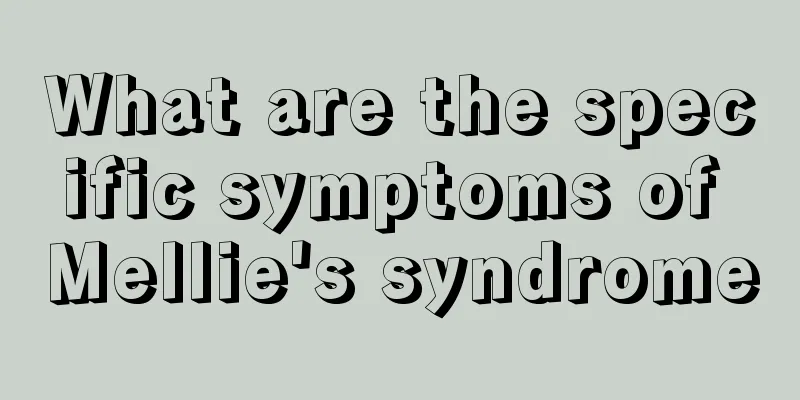What are the specific symptoms of Mellie's syndrome

|
The disease type of Mei's syndrome is very special. This disease attacks suddenly, but the symptoms usually do not last too long. However, during the attack, the patient will feel many abnormal phenomena in his body. The most common symptom is that the patient will feel sudden dizziness, occasionally accompanied by nausea and vomiting. If the patient is relatively serious, he will also become pale. Typical symptoms of Meniere's disease include: 1. Vertigo Most cases are sudden onset of rotational vertigo. Patients often feel that the surrounding objects are rotating around themselves in a certain direction, and the symptoms can be alleviated when closing their eyes. It is often accompanied by autonomic nervous reflex symptoms such as nausea, vomiting, pale complexion, cold sweat, and decreased blood pressure. Any movement of the head can make vertigo worse. The patients are always conscious, and some patients remain awake even if they suddenly fall. The duration of vertigo is usually 10 minutes or several hours, and the longest does not exceed 24 hours. After an attack of vertigo, there will be an intermittent period during which the symptoms disappear. The length of the intermittent period varies from person to person, ranging from a few days to several years. Vertigo can occur repeatedly, with the duration and severity of each attack varying in the same patient and between different patients. The more vertigo attacks occur, the longer each attack lasts and the shorter the intervals between attacks. 2. Deafness In the early stage, it is mostly sensorineural hearing loss with a decrease in low frequency (125-500Hz), which may be fluctuating. Hearing decreases during the attack period, while it may partially or completely recover during the intermittent period. As the disease progresses, hearing loss may gradually worsen, and high-frequency (2-8kHz) hearing loss may gradually occur. This disease may also cause a special hearing change phenomenon: double hearing, that is, the affected ear and the healthy ear can hear the same pure sound as two sounds with different tones and timbres. Or it can be used to describe the sound with a tail tone. 3. Tinnitus Tinnitus may be the earliest symptom of this disease. In the early stage, it may manifest as a continuous low-pitched blowing sound. In the late stage, noisy sounds of various tones may appear, such as bells, cicadas, wind, etc. Tinnitus may appear suddenly or worsen before an attack of vertigo. Tinnitus disappears during intermittent periods, but may persist in patients with long-term illness. A small number of patients may have bilateral tinnitus. 4. Stuffy feeling in the ears During an attack of vertigo, the affected ear may experience a feeling of fullness, pressure, and heaviness. A few patients complained of mild pain and itching in the affected ear. |
<<: How to treat symptoms of muscle strain?
>>: How can symmetrical dermatitis be cured?
Recommend
Cordyceps and wolfberry health tea
What is the effect of Cordyceps and Wolfberry Hea...
How to treat hot flashes and sweating during endocrine therapy for prostate cancer?
Most patients with advanced metastatic prostate c...
How to remove bad breath
Many people have bad breath, so how to get rid of...
How to quickly reduce swelling of the nose
Many people know that the nose plays a very impor...
What's wrong with white spots on the skin
When it comes to the name vitiligo, many people a...
How to straighten deformed calves
In daily life, the calves may become deformed due...
Disadvantages of cupping for weight loss
Cupping has many benefits. Many people like to cu...
Do you know what are the early symptoms of bone cancer?
"What are the early symptoms of bone cancer?...
A vertical line in the middle of the palm
A person's destiny, career, marriage, etc. ca...
Is curly hair hereditary?
Nowadays, many people like to perm their hair and...
What are the symptoms of excessive deficiency fire
Excessive internal heat is quite common in tradit...
Will drinking black wolfberry cause internal heat in summer?
Black wolfberry is a type of wolfberry and is als...
What are the early diagnosis methods for cervical cancer?
What are the early diagnosis methods for cervical...
Is there a high chance of uterine curettage after medical abortion
Is there a high chance of uterine curettage after...
What is thyroid tumor?
In recent years, thyroid diseases have become mor...









